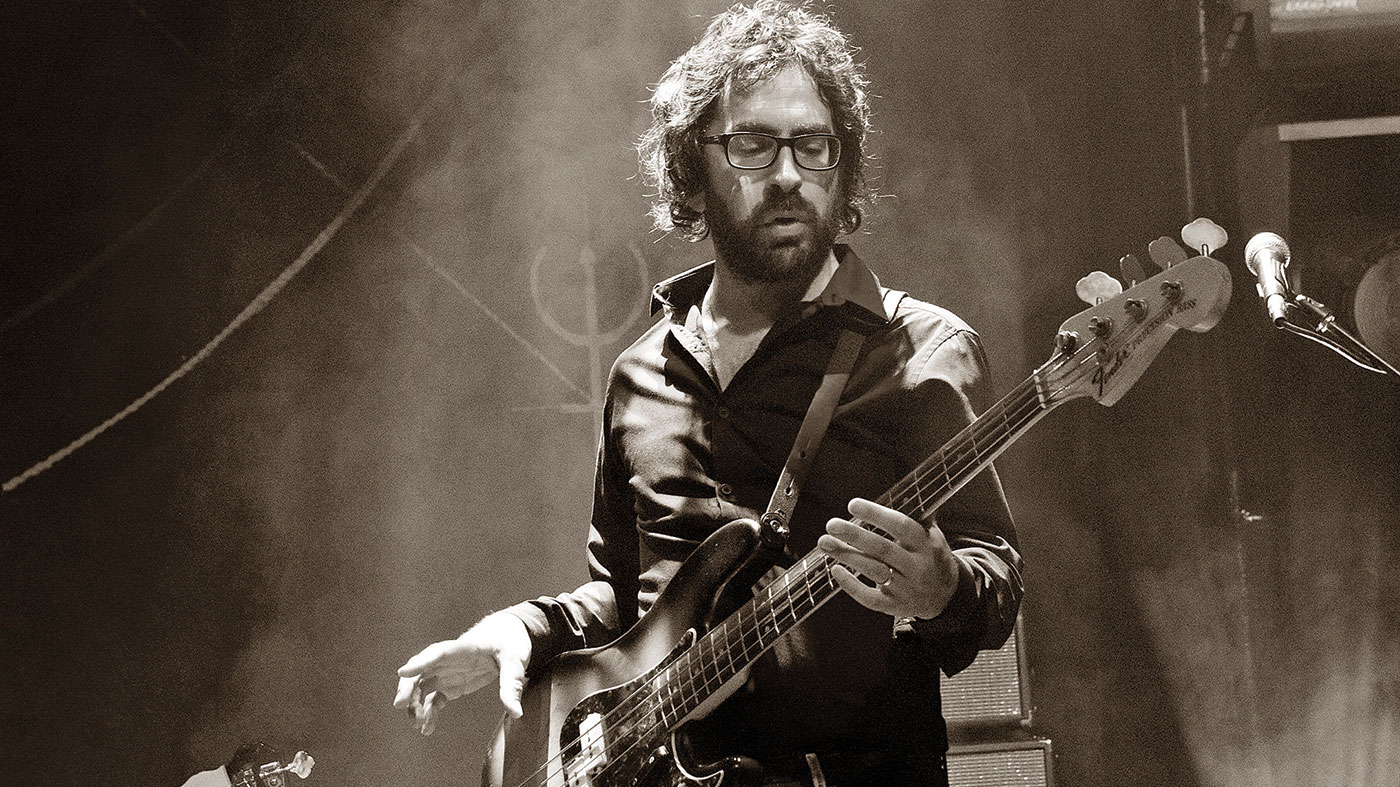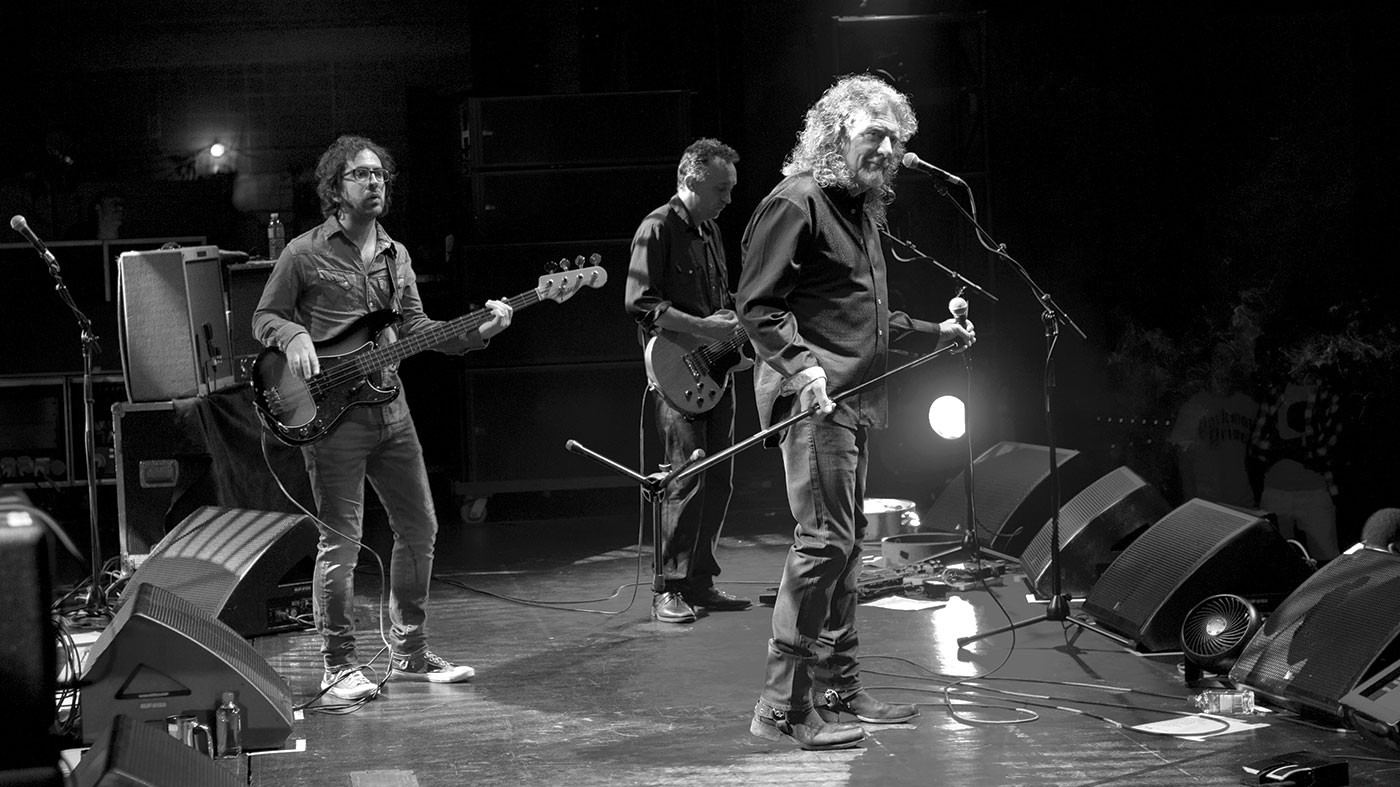Robert Plant bassist Billy Fuller: “Robert came in with a ’71 Precision... he was jumping up and down shouting that it was amazing”
Plant's low-end man on his live rig and that big audition

Want all the hottest music and gear news, reviews, deals, features and more, direct to your inbox? Sign up here.
You are now subscribed
Your newsletter sign-up was successful
Since 2003 Billy Fuller has played with Robert Plant’s bands, Strange Sensation and the Sensational Space Shifters. That’s a whole lotta bass…
“I recently picked up a Harmony H22 bass, the same model that Ronnie Lane played, with gold foil pickups. It’s got a really thin three-bolt neck and tiny guitar tuners, but such a big sound. I plugged it in and started playing old Small Faces and Spencer Davis songs straight away, and it’s already slotted into the set. I’ll get my guitar tech to breathe over it, but honestly it’s already looking gig ready.
People look at me in a puzzled way when they see my cab configuration
“Matt Straw is my tech and has been around since the days of Page & Plant. If anything goes wrong, I send a raised eyebrow signal across the stage and he’s there straight away, but it’s all pretty reliable. I have a pair of Fender Super Bassman 300-watt heads; one is a spare on standby, just in case, while the live one is running a 4x10 cab on the bottom and a 1x15 on the top.
“People look at me in a puzzled way when they see my cab configuration, but to me it just sounds so much better that way around, and the front-of-house engineer likes to mic up from the 15 on the top. It’s a brilliant-sounding rig.
“Back home I have an old silverface Fender 2x15 cab, driven by an original Kustom head. I use this set up in Beak, my three-piece band based in the UK, which features Geoff Barrow from Portishead on drums and Will Young from Moon Gangs on guitar and organ.
“On the floor for this tour I have various delays and overdrives such as Big Muffs, although the drive on the Fender Super Bassman head is also very good. I did have a Super Synth in the chain, but I dialled in some new settings on the Big Muff and it sounded better.
Soul man
“I had an Aria Pro II bass when I was a youngster; I would tune up to my little cassette machine and play along to cassettes that I bought from the petrol station at the end of the road. The old tape machine ran so slowly, I had to retune to play with anyone else! Those were very early days; my inspiration to play bass came from my older brother who was a mod and a huge fan of the Jam. He played their records all the time and I thought Bruce Foxton was brilliant, such a great bass player and my first reference point.
Want all the hottest music and gear news, reviews, deals, features and more, direct to your inbox? Sign up here.
James Jamerson, who was a big influence, played so many of those incredible basslines
“My brother also introduced me to Motown, which I think was a magical time for the bass guitar. James Jamerson, who was a big influence, played so many of those incredible basslines. They were often quite simple, but it was all about the tone and where the lines sat in the track. I don’t want to sound like an old git, but I think a lot of that is missing of late.
“Along with the Harmony H22 I’m touring with a couple of reissues; a Guild Starfire and a 61 Fender Jazz, which I play with tapewound strings and a pick for a kind of Herbie Flowers sound. I’ve also got a really nice early Fano PX4, but my number one bass for stage and studio is my 1971 Fender Precision, which I acquired in 2004.
“We were in the studio at the time, and Robert said that it just wasn’t working with the black Jazz bass I was playing, which was the only posh bass I had. He came in the next day with the ’71 Precision and told me to try again. I just plugged it in and got the take in one go, and he was jumping up and down shouting that it was amazing - and he gave me the bass.

Double take
“I also tour with a 1960s Hungarian double bass, an old faithful. I received a cheque for completing a two-year Jobseekers For Musicians course many years ago, and I had a friend working in the music department in a school in Bristol who said they were selling a double bass for £400 - the same amount as the cheque.
“The school kids had been scratching their names on it, the bridge had fallen off and the neck needed looking at, but there was something about it that I liked. I used it in a crazy psychedelic seven-piece band called Fuzz Against Junk, who were the first band to be signed by Invada Records in 2002.
He said, ‘Robert Plant’s band are looking for a bass player’. I said, ‘Well yeah, I’ll give it a go!’
“We were playing a pub in Bristol called The Louisiana and Geoff Barrow, who I didn’t know at the time, was in the audience. He liked how I played and asked if I was up for an audition the next day. I asked who it was for, and he said, ‘Robert Plant’s band are looking for a bass player.’ I said, ‘Well yeah, I’ll give it a go!’ I had to get all my gear in my mate’s work van as I didn’t have transport, and headed off to a studio near Bath. At first it was just the band, but then Robert Plant walked in, saying ‘Hi, I’m Robert.’
“I thought the chances of getting the job were slim, but at least for the rest of my life I could tell my mates that I played with Robert Plant all day - and what a trip that day was. They threw about 20 songs at me, and at the end of that day I got the gig. I was already a fan of Led Zeppelin; I thought they were amazing. At the time they sounded like nothing else I’d heard. Even now, I’m genuinely moved by how much emotion they put into their recordings.”

